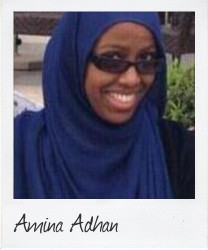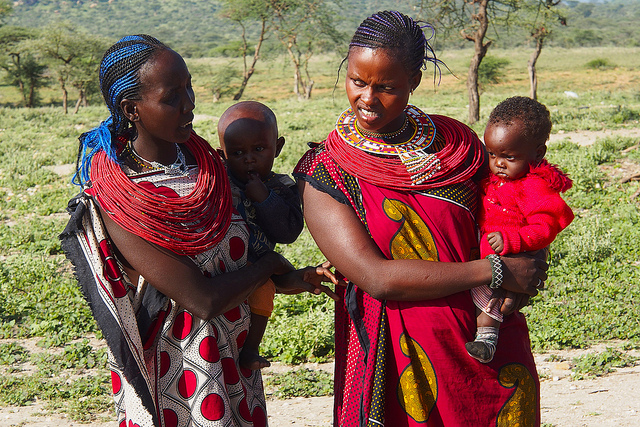“Multi-generational dialogue on gender equality”
March 19th, 2014 Progress on the goal of equal rights for women in Kenya has been uneven according to speakers at a UN conference, writes Amina Adhan, 22, a Correspondent from Nairobi, Kenya. But at the same time, young people have an opportunity to participate and advance the cause.
Progress on the goal of equal rights for women in Kenya has been uneven according to speakers at a UN conference, writes Amina Adhan, 22, a Correspondent from Nairobi, Kenya. But at the same time, young people have an opportunity to participate and advance the cause.
The United Nations Women Nairobi office held a multi-generational dialogue on gender equality and women empowerment. Under the banner of the Joint Program on Gender Equality and Women Empowerment. http://www.jpgewe.org/, the 6th March event was a lead up to International Women’s Day celebrated on 8th March every year.
The theme “Securing Equal Rights and Opportunities for Kenya’s Women and Girls through the Millennium Development Goals (MDG’s): Gains, Losses and Opportunities” fit International Women’s Day celebrations, while the event brought together UN experts, non-governmental organizations and university students. The aim of the one-day conference was to actively engage youth on sustainable development issues and specifically MDG 4 on gender equality.
Ms. Zebib Kavuma, UN Women Country Director, gave opening remarks noting the importance of this forum in giving youth a platform to articulate development priorities. International Women’s day, she added, was a time for the UN system, government and other stakeholders to review progress on gender equality.
“The time has come for women to be recognized, felt, heard and seen”, she affirmed. Countries should build on gains made and reflect on lessons. A key lesson is that the MDGs did not consult young people and as such future plans must involve the youth. Gender equality has increasingly been recognized as a human right and a prerequisite to achieving all other MDG goals.
Ms. Zewde, Director-General of the United Nations office at Nairobi, said that equality can become a lived reality. She noted that Kenya is on track in closing gender gaps albeit much still needs to be done. Women in Kenya are represented in parliament and the senate, and hold strategic portfolios in the executive. The private sector has also made reforms with credit facilities increasingly targeting women. She contends that young people are an asset and key drivers towards the achievement of post-2015 development agenda. Technological advances such social media present an avenue for young people to input and mobilize support for development frameworks. She reiterated the UN commitment to continue engaging young people on the post-2015 agenda at national level deliberations.
Emma Munyambu, Country Director, Agency for Cooperation and Research in Development Kenya, underscored factors that stifle gender equality. She pointed out that women still don’t have control over resources, citing that only one per cent of women own land in Africa – an asset crucial to food security and accessing credit facilities. Moreover although affirmative action has given women political space, women still cannot effectively influence policy. Access to reproductive rights is still minimal and economic justice is far from achieved as more women continue to languish in low paying jobs and informal labor.
Felogene Anumo, an Advocacy Programme Associate at African Women’s Development and Communications Network, identified challenges in advocating for gender equality. Development issues are intertwined with politics and therefore it is difficult to articulate gender equality. Activists also face backlash from a deeply patriarchal society. In addition the MDGs had gaps in lacking specific targets regarding gender violence and women’s sexual reproductive rights.
Dr. Abdul Rahman Lamin, Social and Human Sciences specialist with UNESCO, noted that gender equality is a cross-cutting issue and a human right. He stressed that a systematic approach should be adopted to promote gender equity and that the fight against gender discrimination should focus on engaging minds.
Wanjeri ‘Fawa’ Ndegwa, a student at United StatesInternationalUniversity, highlighted ways young people could champion gender equality: through individual and collective advocacy, activism, youth led initiatives and partnerships with governments. She underscored that young people are development ambassadors who should lead and create awareness about development frameworks.
Esther Awour, a University of Nairobi student, called for a multidisciplinary approach in tackling gender discrimination in social, economic and political spheres. “Young people can contribute to development issues by actively participating, implementing, monitoring and evaluating development strategies” she reiterated.
Elaine Wangari of Catholic University of Eastern Africa emphasized that young people have to understand their rights and legal provisions, so as to better advocate for gender equity. She maintained that “gender equity is possible if we all support it”
photo credit: titoalfredo via photopin cc
………………………………………………………………………………………………………………
About me: I am currently pursuing a degree in International Relations at United States International University – Africa (USIU-A). I have served as the Inter-governmental organizations liaison for Youth Alliance for Leadership and Development in Africa (YALDA) – USIU chapter 2013-2014. I am passionate about peace, women empowerment and youth empowerment. I believe to have lived is to have made an impact in people’s lives and as such I am always looking to inspire others to learn more, be more and do more.
………………………………………………………………………………………………………………
Opinions expressed in this article are those of the author and do not necessarily represent the views of the Commonwealth Youth Programme. Articles are published in a spirit of dialogue, respect and understanding. If you disagree, why not submit a response?
To learn more about becoming a Commonwealth Correspondent please visit:
http://www.yourcommonwealth.org/submit-articles/commonwealthcorrespondents/
………………………………………………………………………………………………………………




